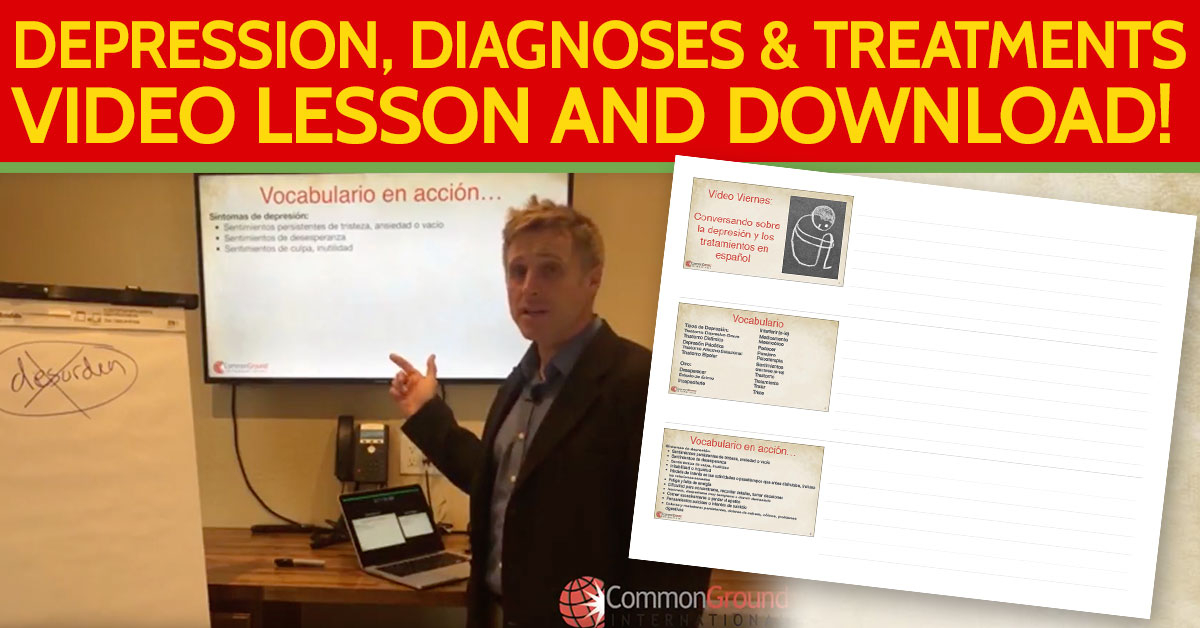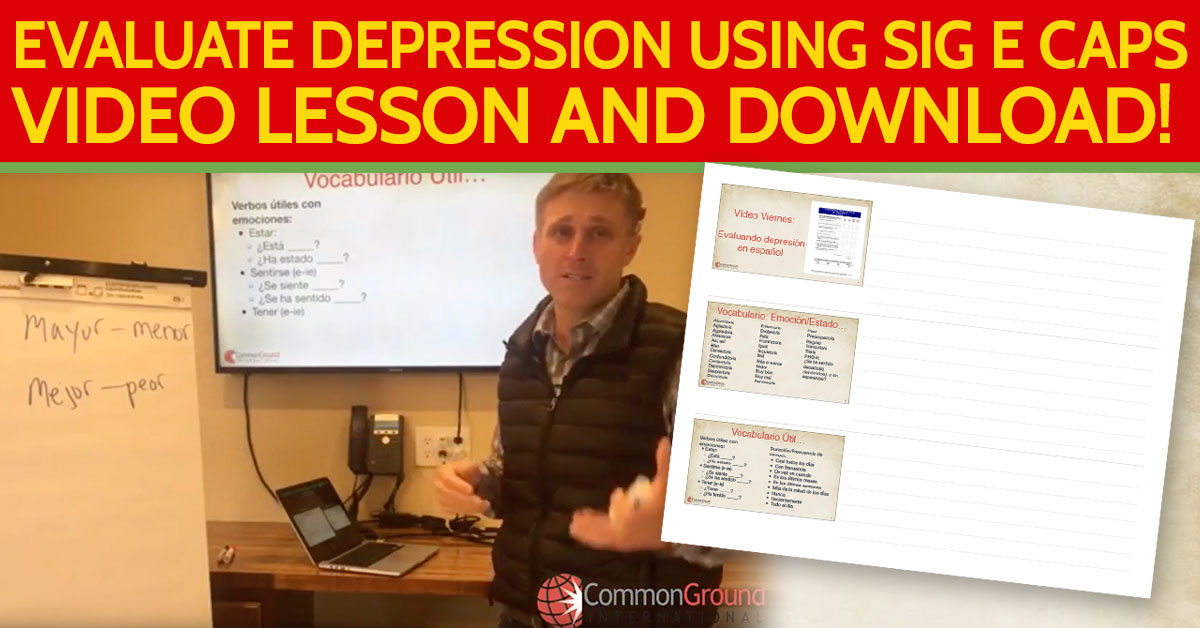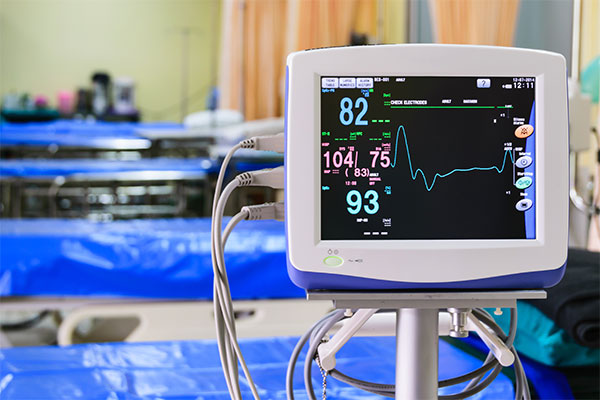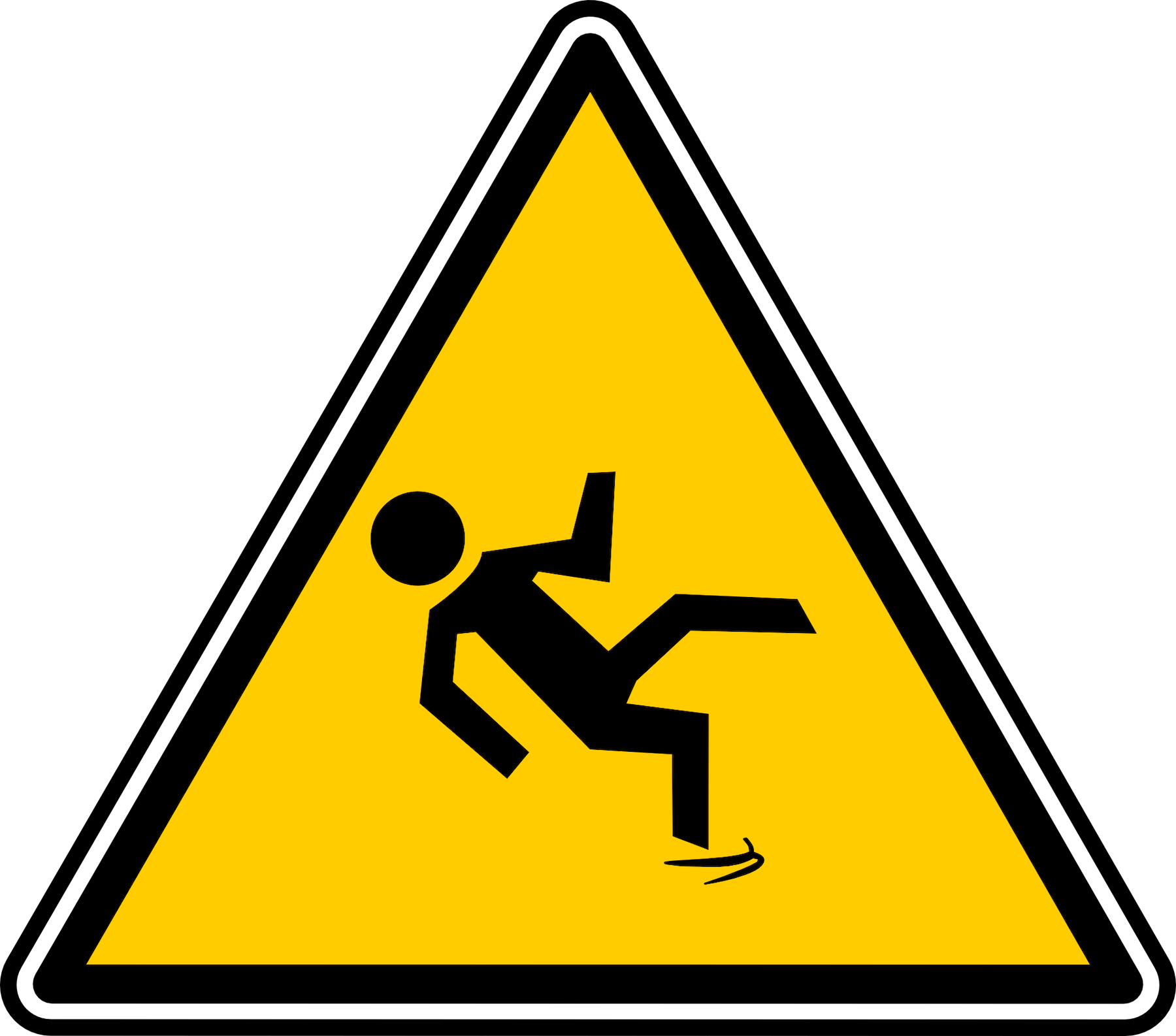Screening for depression and anxiety with the PHQ-9 and GAD-7 in Spanish.
Do you ever use the PHQ-9 or GAD-7 to screen your patients for depression and anxiety? If you do, review this free medical Spanish lesson out to learn:
- The Spanish words for the symptoms of depression that the PHQ-9 refers to
- Spanish words for the symptoms of anxiety that the GAD-7 refers to
- How to communicate common anxiety and depression recommendations in Spanish
The main question that both the PHQ 9 and the GAD 7 ask is how often over the past 2 weeks the person has experienced the symptoms we’re screening for. There are 2 ways to ask the question in Spanish:
Durante las últimas dos semanas…
- ¿con qué frecuencia ha sentido (tenido) molestias por los siguientes problemas?
- ¿qué tan seguido ha sentido (tenido) molestias por los siguientes problemas?
The important frequencies for answering the above question are:
- 0: nunca / ningún día
- 1: Varios días
- 2: Más de la mitad de los días
- 3: Casi todos los días
Let’s take a look at the Spanish equivalents of the signs and symptoms of depression on the PHQ 9:
| En español | En inglés |
| Tiene: – Poco interés en hacer cosas – Poco placer en hacer cosas – No tiene apetito – Dificultad para: –*dormirse –*permanecer dormido –*concentrarse | Do you have: – little interest in doing things – little pleasure in doing things – don’t have an appetite – difficulty: –*falling asleep –*staying asleep –*concentrating |
| Se siente: – decaído(a) – deprimido(a) – sin esperanzas – mal con usted mismo(a) – un fracaso – cansado(a) – con poca energía – culpable | Do you feel: – down – depressed – hopeless – bad about yourself – like a failure – tired – low energy – guilty |
| Otras frases: – Duerme demasiado – Come demasiado – Queda mal con usted mismo – Queda mal con su familia – Se mueve o habla tan lento que otras personas lo notan – Está inquieto o agitado y se mueve mucho más de lo normal – Piensa que estaría mejor muerto – Piensa en lastimarse de alguna manera | Other phrases: – you sleep too much – you eat too much – you have lost face, respect for yourself – you have lost face, look bad in front of your family – you move or speak so slowly that others notice – you’re restless or agitated and move a lot more than normal – you think you’d be better off dead – you think about harming yourself in some way |
Now let’s take a look at the Spanish equivalents of the signs and symptoms of anxiety on the GAD 7:
| En español | En inglés |
| Tiene: – dificultad para relajarse – miedo que algo terrible pudiera pasar | You have: – difficulty relaxing – fear that something terrible could happen |
| Se siente: – nervioso(a) – intranquilo(a) – con los nervios de punta | You feel: – nervous – restless / unsettled – like your nerves are on edge |
| Otras frases: No puede dejar de preocuparse No puede controlar la preocupación Se preocupa demasiado por diferentes cosas No puede permanecerse sentado por estar inquieto Se molesta fácilmente Se pone irritable fácilmente | Other phrases: You can’t stop worrying You can’t control your worrying You worry too much about different things You can’t stay seated because of your restlessness/being unsettled You get bothered easily You get irritable easily |
| Síntomas de ataques de pánico: Tiene: – palpitaciones – dolor en el pecho – falta de aire – ansiedad en ciertos lugares o en ciertas situaciones | Symptoms of panic attacks: You have: – palpitations – chest pain – shortness of breath – anxiety in certain places or in certain situations |
A few follow-up questions you may find yourself asking about these depression and anxiety systems could be:
Usted marcó que se siente _______. ¿Podría explicarme un poquito más sobre como esto le afecta en:
- El trabajo?
- La familia?
- Sus relaciones?
¿Ha podido cumplir con sus responsabilidades en:
- El trabajo?
- La casa?
- Con su familia?
¿Cuándo empezaron estos sentimientos / síntomas?
¿Cómo hace para aliviar los sentimientos que tiene?
¿Le han diagnosticado con la depresión / la ansiedad antes?
¿Alguna vez ha pensado en lastimarse? ¿Lastimar a otra persona? ¿Suicidarse?
Some common recommendations you may find yourself giving could be:
Es importante que usted:
- Hable con… (name of professional)
- Haga ejercicio
- Coma una dieta balanceada
- Tome sus medicamentos sin falta
Recomiendo que usted:
- Consulte con un psicólogo
- Programe una cita de seguimiento conmigo en 2 semanas
- Llame si tiene problemas con la medicina
- Vaya a la sala de emergencias si piensa en lastimarse
- Llame a la línea de crisis
Voy a recetarle un medicamento para:
- Su ansiedad
- Su depresión
- Ayudarle a dormir
Quiero referirle al…
- Consejero / Terapeuta
- Psicólogo
- Psiquiatra
Want to practice with your conversation partner? Here are some scenarios to get you started:
Paciente 1:
- Julia tiene 15 años. Sus padres están teniendo problemas en su matrimonio y ella está teniendo problemas académicos y sociales en la escuela.
Paciente 2:
- Pablo tiene 43 años y ha padecido depresión desde su segundo divorcio. Sus hijos no quieren pasar tiempo con él y se siente un fracaso.
Paciente 3:
- Susana tiene 25 años y pasó varios traumas durante su proceso de inmigrar a los Estados Unidos hace 8 años. Ella no ha podido mantener un trabajo estable por su ansiedad y depresión.
Paciente 4:
- Jorge tiene 79 años y está muy deprimido, ya no tiene ganas de vivir. Su esposa de 55 años se murió el año pasado por COVID y se siente muy solitario y aislado
Other posts in this Mental Health series:

Screening your Spanish speaking patients for depression

Explaining Depression Diagnoses & Treatments in Spanish

How to Evaluate Depression in Spanish using SIG E CAPS

Questions and Phrases to Assess Child Abuse and Neglect in Spanish

Mental Health Conversations in Spanish

Discussing Depression in Spanish

Discussing Anxiety in Spanish

Discussing Substance Abuse in Spanish

Discussing PTSD in Spanish







Thank you, very helpful!
Great video!